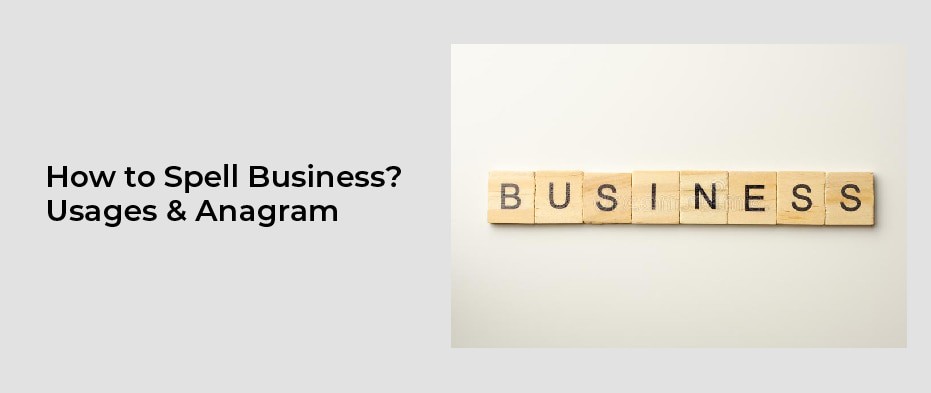How to spell business? The word “business” can be spelled several ways. The most common way to spell it is “busi-ness,” with a dash between the first two syllables. However, you may also see it spelled as “busi-nesse,” “biz-ness,” or simply “biz.”
No matter how you choose to spell it, the important thing is that you are consistent throughout your writing. If you are spelling it “busi-ness,” make sure to use that spelling throughout the document. The same goes for the other variations.
If you are unsure of how to spell business, consult a dictionary or style guide. These resources will give you the correct spelling and help you decide which spelling to use in your own writing.
What are the misspellings for business?
There are a few different misspellings for the word business. The most common misspelling is “busniess.” This is likely because the word looks similar to other words with the same spelling, such as “bussen” and “busyness.” Other common misspellings include “biznass” and “biznes.” While these may be less common, they are still used occasionally.
As the world of business continues to grow, so do the number of misspellings for business-related terms. While some may be obvious, others can be quite confusing. Here are a few of the most common misspellings and their correct spellings:
Business – This is the most common spelling of the word, and is used interchangeably with the term “company.”
Businesse – This spelling is less common, but is still seen occasionally. It is derived from the French word “entreprise.”
Bussiness – This spelling is incorrect, but is often seen in place of “business.
What are similar-sounding words for business?
Business jargon is a specific vocabulary used in the business world. The terms can be confusing to those outside of the business world and often difficult to understand. Jargon can be found in any industry, but there are some common terms that are used across industries. Here are a few examples of business jargon and their definitions:
EBITDA: Earnings before interest, taxes, depreciation, and amortization. This is a measure of a company’s financial performance.
P&L: Profit and loss statement. This is a financial statement that shows a company’s revenues, expenses, and profits or losses over a period of time.
ROI: Return on investment. This is a measure of how much money a company makes in relation to the amount of money it invests in its business.
These are just a few examples of business jargon.
Usage over time for business
The way businesses use technology has changed drastically over time. In the past, businesses would have to rely on paper records and manual processes to get work done. Today, there are a myriad of digital tools that businesses can use to automate tasks and improve efficiency.
One of the most important changes in business usage of technology is the way that communication has changed. In the past, businesses would have to rely on phone calls and faxes to communicate with clients and suppliers.
Today, there are many different options for communication, including email, instant messaging, video conferencing, and more. This has made it easier for businesses to stay in touch with their customers and suppliers, and has made it possible to conduct business on a global scale.
Another major change in business usage of technology is the way that information is stored and accessed.
Anagrams for business
Anagrams are a great way to come up with new business ideas. By rearranging the letters in a word or phrase, you can create new words and phrases that can be used to brainstorm new business concepts.
For example, the word “company” can be rearranged to spell “many Cop.” This anagram could be used to brainstorm a business that provides services to multiple companies.
Another example is the word “consultant.” This can be rearranged to spell ” Cullen’s Tom.” This anagram could be used to brainstorm a business that provides consulting services to businesses in theTom Cullen industry.
By using anagrams, you can quickly and easily come up with new business ideas that you may never have thought of before. So next time you’re stuck for ideas, try using anagrams as a way to jump start your creativity.
How do the British spell business?
In the United Kingdom, business is spelled with a “z” instead of an “s”. This is because the British use the “z” in words like “realize” and “recognize”. The British also spell words like “colour” and “labour” with a “u”.



